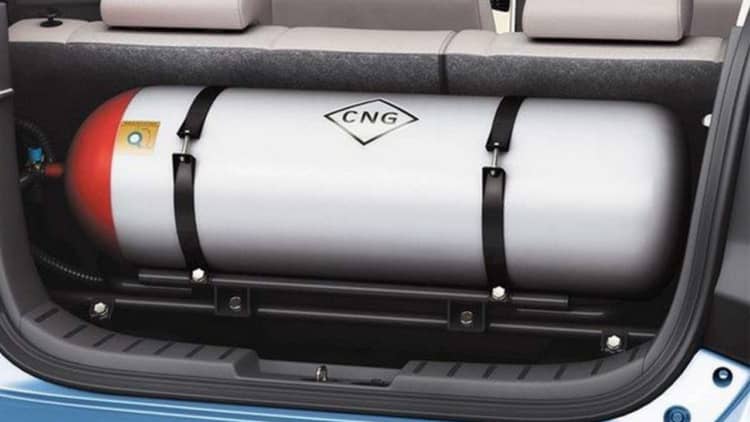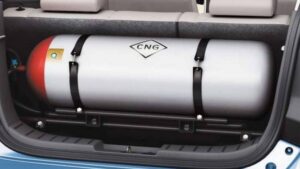
Deciding between Compressed Natural Gas (CNG), Liquefied Petroleum Gas (LPG), and traditional fuels such as gasoline and diesel is crucial for car owners who prioritize safety, cost-efficiency, and environmental benefits. This comprehensive guide will delve into the advantages, disadvantages, and safety aspects of CNG, compare it with LPG and other fuel options, and provide a detailed analysis to help you make an informed choice.
What Are CNG and LPG?
Definition of CNG
CNG stands for Compressed Natural Gas, a type of fuel derived mainly from methane gas (CH₄). It’s stored under high pressure (typically 20-25 MPa) in cylindrical tanks, making it usable for vehicles. CNG is a cleaner and more affordable alternative to traditional fuels, significantly reducing carbon emissions and other pollutants.
Definition of LPG
LPG, or Liquefied Petroleum Gas, is a combination of propane (C₃H₈) and butane (C₄H₁₀) gases, stored in a liquid state under moderate pressure (around 2 MPa). It has a higher energy content than CNG, which makes it a common choice for home heating, cooking, and automotive use. The transition from LPG to traditional fuels is straightforward due to its versatility and widespread availability.
whats the Differences Between CNG and LPG?
below are the key difference between cng and fuel
| Feature | CNG | LPG |
|---|---|---|
| Primary Component | Methane (CH₄) | Propane (C₃H₈) and Butane (C₄H₁₀) |
| Energy Density | Lower than LPG | Higher than CNG |
| Storage Pressure | 20-25 MPa (high-pressure tanks) | 2 MPa (low-pressure tanks) |
| Weight | Lighter than air (disperses easily) | Heavier than air (settles in low areas) |
| Emissions | Lower greenhouse gas emissions | Moderate emissions compared to gasoline |
| Availability | Region-specific (limited stations) | Widely available worldwide |
Advantages of CNG
- Cost Savings
CNG is typically cheaper than gasoline or diesel, leading to significant fuel cost savings. In regions with a robust natural gas infrastructure, governments often provide subsidies or incentives for CNG vehicle conversions, making it a cost-effective choice for long-term use. - Cleaner Combustion
CNG burns much cleaner compared to gasoline or diesel, producing lower levels of harmful pollutants like carbon monoxide (CO), particulate matter, and nitrogen oxides (NOx). This makes it an environmentally friendly fuel, reducing the carbon footprint of vehicles. - Lower Engine Maintenance
Vehicles running on CNG usually have lower maintenance costs due to the cleaner combustion process. Carbon deposits are minimal, leading to less engine wear and tear, reduced spark plug fouling, and longer intervals between oil changes. - Energy Independence
Many countries have ample natural gas reserves, making CNG a strategic choice for reducing dependence on imported oil. This local availability contributes to stable fuel prices and enhances energy security. - Safer Storage
Despite being stored at high pressure, CNG is considered safer because it is lighter than air. In the event of a leak, it disperses quickly into the atmosphere, minimizing the risk of explosion or fire.
Disadvantages of CNG
- Lower Energy Density
CNG has a lower energy density compared to LPG, gasoline, and diesel. This means that to achieve a similar driving range, CNG vehicles require larger fuel tanks, which can consume valuable trunk space and add additional weight. - Limited Refueling Infrastructure
In many regions, the infrastructure for CNG refueling is not as well-developed as for gasoline or LPG. The scarcity of CNG stations can make long-distance travel challenging, especially in rural areas. - High Storage Pressure
CNG must be stored under very high pressure (20-25 MPa), necessitating specialized, more expensive, and heavier tanks. This adds to the initial cost of CNG conversion and installation, particularly for cars not originally designed for CNG. - Performance Impact
Due to its lower energy density, CNG can reduce vehicle performance slightly, affecting acceleration and overall driving experience. High-performance cars may not benefit as much from CNG as economy vehicles.
IS CNG SAFER THAN FUEL (LPG)?
Yes. cng is considered safer than fuel due to so many dynamics.
Safety is a critical factor when choosing a fuel type for vehicles. Below is an overview of the safety concerns associated with both CNG and LPG:
- Storage Pressure
- CNG: Stored at higher pressures, which requires stronger and heavier cylinders. While this adds to the vehicle’s weight, the high-pressure tanks are rigorously tested to withstand impact.
- LPG: Stored at a much lower pressure, making the tanks lighter and cheaper. However, LPG is heavier than air, so in case of a leak, the gas can settle in low-lying areas, increasing the fire risk if not handled properly.
- Leak and Fire Hazards
- CNG: Being lighter than air, CNG dissipates quickly in the event of a leak, reducing the chance of ignition. It is considered safer in enclosed spaces like garages if ventilation is adequate.
- LPG: Since LPG is heavier, it tends to pool in low areas, making it more prone to ignition. Proper safety measures like gas detectors and ventilation are crucial for LPG systems.
- Explosion Risks
- CNG: High-pressure tanks are built to stringent safety standards, with multiple safety valves to prevent overpressure. These features minimize the risk of explosions.
- LPG: In enclosed spaces, a leak can create a concentrated gas cloud, raising the potential for explosion. Proper installation and maintenance are vital to minimize this risk.
CNG vs LNG: Which is Better?
LNG (Liquefied Natural Gas) is another form of natural gas, cooled to a liquid state at extremely low temperatures (-162°C). While CNG is stored at high pressure in a gaseous form, LNG is stored in a cryogenic state for higher energy density.
- Storage: CNG is stored at high pressure, while LNG requires cryogenic storage, which is more complex and costly.
- Energy Density: LNG has a higher energy density than CNG, making it suitable for long-haul transport, while CNG is more practical for everyday urban use.
- Cost: CNG has lower infrastructure costs compared to LNG, making it more accessible for regular car owners.
LPG vs CNG: Which is Better for Cars?
- Fuel Economy
LPG has a higher energy content per liter compared to CNG, which means cars running on LPG have a longer driving range for the same tank size. However, CNG’s lower emissions and cleaner burning make it a more environmentally friendly option. - Conversion Costs
LPG conversion is typically cheaper than CNG because it involves simpler and lighter storage tanks. CNG’s high-pressure tanks are more costly to install and maintain. - Environmental Impact
Both LPG and CNG are cleaner than traditional fuels, but CNG is the cleaner option, emitting fewer greenhouse gases. This makes CNG the better choice for drivers concerned about reducing their carbon footprint. - Fuel Availability
LPG has a well-established refueling infrastructure globally, making it more accessible. CNG’s availability is more region-specific, and refueling stations can be limited outside urban centers.
Conclusion
Choosing between CNG and LPG boils down to your priorities. If cost, safety, and environmental impact are your main concerns, CNG is a safer and cleaner option, albeit with some limitations in fuel range and availability. LPG, on the other hand, offers better fuel efficiency and a more extensive refueling network, making it a practical choice for long-distance driving. Both fuels present a viable, safer alternative to traditional gasoline or diesel, helping reduce the environmental impact while saving costs in the long run.
Selecting the best option involves considering your driving habits, regional fuel availability, and the importance of environmental sustainability in your fuel choice.







i enjoy reading this great article, i have shared it many times on my website and started following you, Do you post more often ?? i am the owner of https://webdesignagenturbayreuth.de/ a webdesign agency in bayreuth Germany, webdesign agentur bayreuth, you can link up if you are interested. Thank you
wow your article is simply a masterpiece, i like that, keep it up and will be checking for new update. do you post often? you can check the biggest webdesign freelancer in platform in germany called https://webdesignfreelancerhamburg.de/ Thank you for your wonderful post